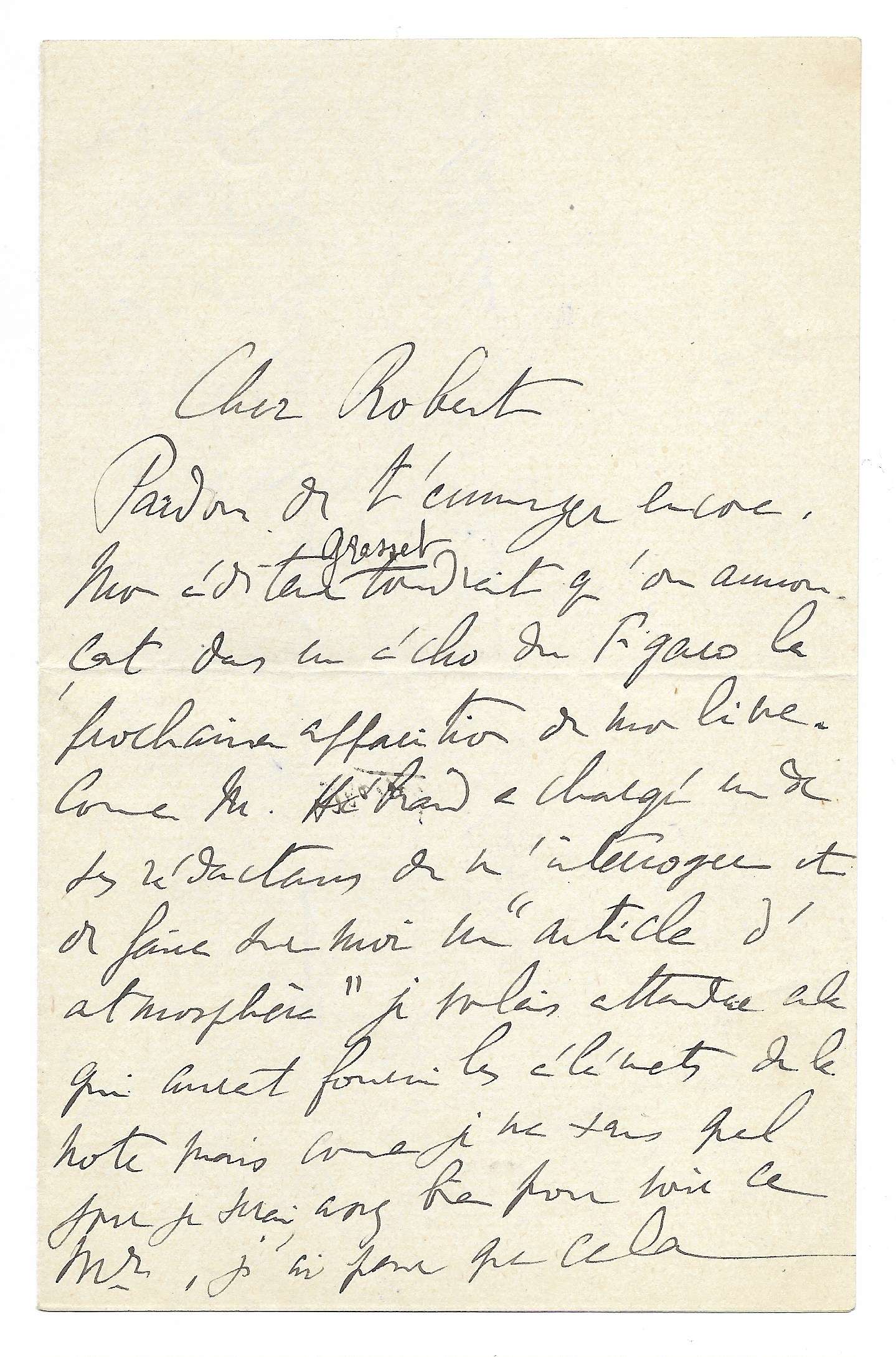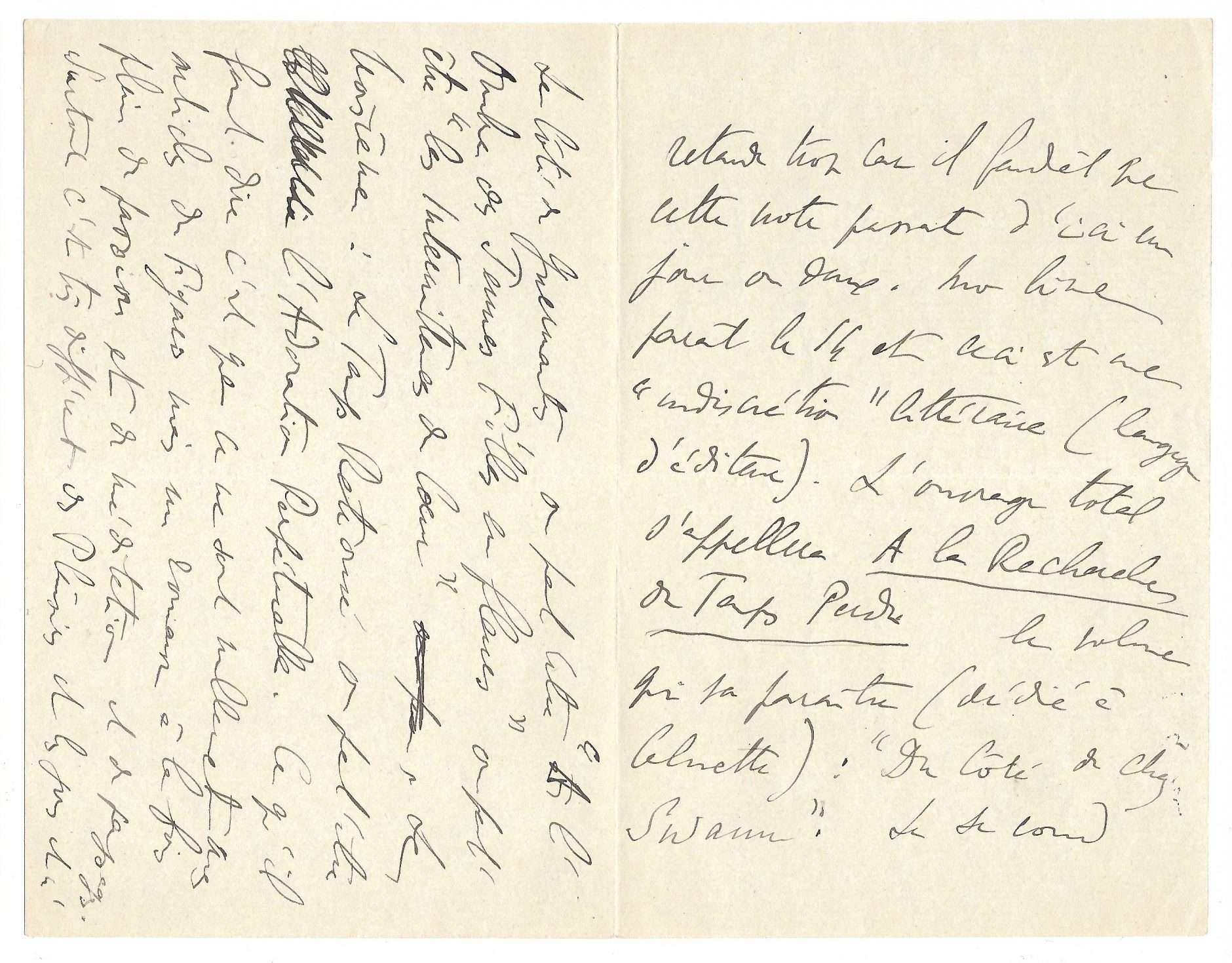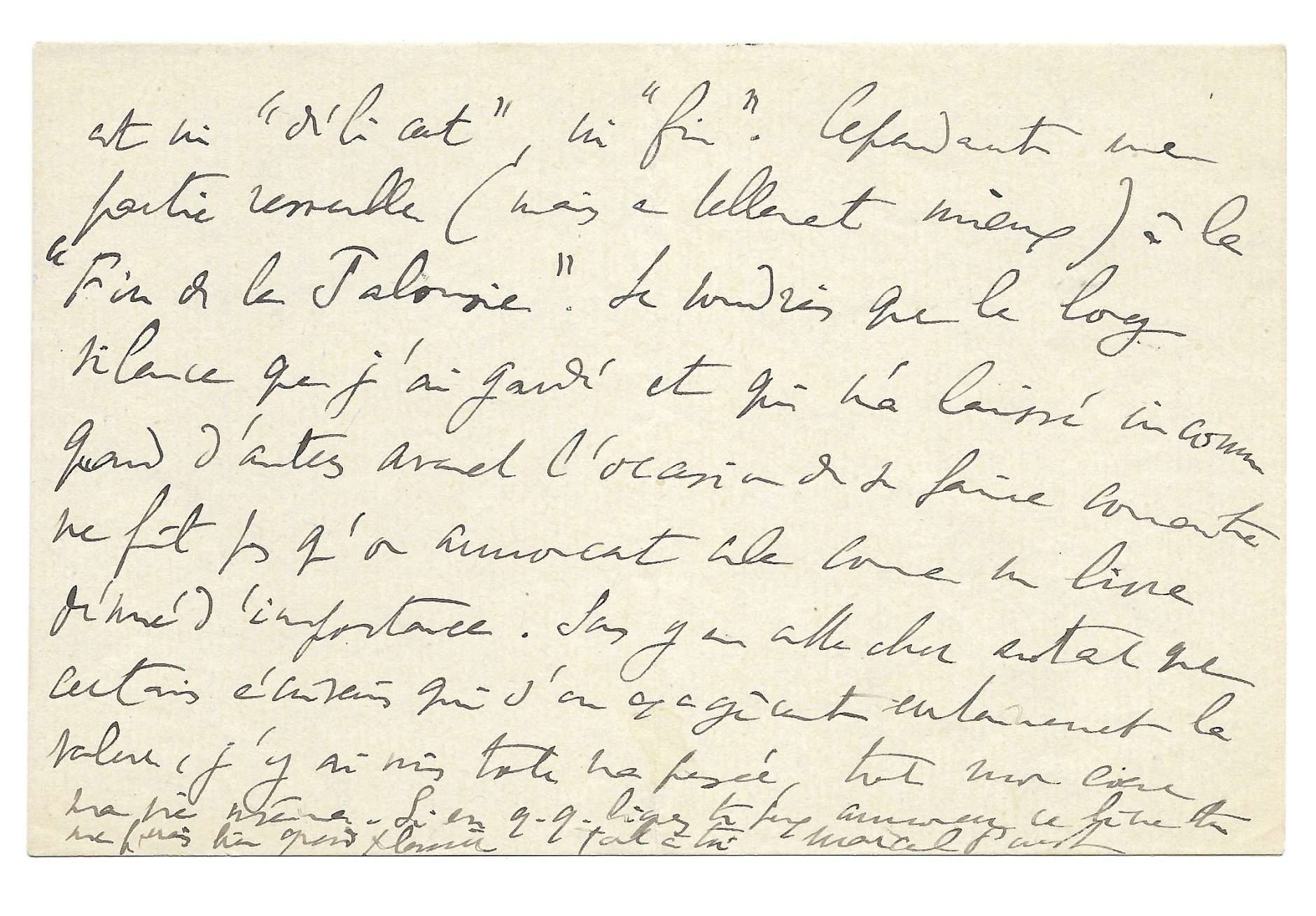PROUST, Marcel (1871-1922)
Autograph letter signed “Marcel Proust” to Robert de Flers
[Paris, November 6, 7 or 8, 1913] (1) 4 pages in-8
“The total work will be called In Search of Lost Time”
Fact sheet
PROUST, Marcel (1871-1922)
Autograph letter signed “Marcel Proust” to Robert de Flers
[Paris, November 6, 7 or 8, 1913] (1) 4 pages in-8
Extraordinary letter in which Proust releases the plan of In search of lost time
« Cher Robert, Pardon de t’ennuyer encore. Mon éditeur Grasset voudrait qu’on annonçât dans un écho du Figaro la prochaine apparition de mon livre. Comme Mr Hébrard a chargé un de ses rédacteurs de m’interroger et de faire sur moi un « article d’atmosphère » (2) je voulais attendre cela qui aurait fourni les éléments de la note mais comme je ne sais quel jour je serais assez bien pour voir ce m[onsieu]r, j’ai peur que cela retarde trop car il faudrait que cette note passât d’ici un jour ou deux.(3)
Mon livre paraît le 14 et ceci est une « indiscrétion » littéraire (langage d’éditeur). L’ouvrage total s’appellera A la Recherche du Temps Perdu [ ;] le volume qui va paraître (dédié à Calmette) : « Du Côté de chez Swann ». Le second Le Côté de Guermantes, ou peut’être « A l’ombre des Jeunes Filles en fleurs » ou peut’être « les Intermittences du Cœur » (4) ou peu. Le troisième : Le Temps Retrouvé ou peut’être l’Adoration l’Adoration Perpétuelle (5). Ce qu’il faut dire c’est que ce ne sont nullement mes articles du Figaro mais un roman à la fois plein de passion et de méditation et de paysages.
Surtout c’est très différent des Plaisirs et les jours et n’est ni « délicat » ni « fin ». Cependant une partie ressemble (mais en tellement mieux) à la Fin de la Jalousie (6). Je voudrais que le long silence que j’ai gardé et qui m’a laissé inconnu quand d’autres avaient l’occasion de se faire connaître ne fît pas qu’on annonçât cela comme un livre dénué d’importance. Sans y en attacher autant que certains écrivains qui s’en exagèrent certainement la valeur, j’y ai mis toute ma pensée, tout mon cœur, ma vie même. Si en q.q. [quelques] lignes tu peux annoncer ce livre tu me ferais bien grand plaisir. Tout à toi. Marcel Proust »
1 – This letter was written a few days before November 14, 1913, the date of the publication of Swann’s Way. Proust announces “My book appears on the 14th“, he asks for an announcement to be made in the Figaro (see note 3). It should therefore date from November 6, 7 or 8, 1913.
2 – Adrien Hébrard was editor of the newspaper Le Temps. An “atmospheric article“, as Proust calls it, will predate that of Le Figaro and will be published the day before the publication, on 13 November, under the signature Elijah-Joseph Bois. Proust wrote this letter before receiving the journalist.
3 – The note that Proust requests will appear on the front page of Le Figaro on Sunday, November 16, 1913
4 – Intermittences of the Heart is not only one of the most moving parts of In Search of Lost Time (in Sodom and Gomorrah). Proust considered it, as this letter attests, as a possible title.
5 – Proust could not choose between these two titles to indicate the outcome of his work, published posthumously. Perpetual Adoration, which is referred to here, alludes to the Holy Sacrament in the Catholic liturgy, which consists of paying uninterrupted tribute to it. Thus, the faithful of the same parish take turns in front of it, so that there are always worshipers.
It should be noted that Proust mentions this title in a letter he sent to Gallimard in November 1912. The two titles continue to appear together in the plan of the work announced in 1918. It is likely that Proust was unaware that this title had already been used in a romance novel, by Guy de Teramond, in 1902.
The final choice for Time Regained also allowed to give a form of syntactic symmetry with the name of the entire work.
6 – As Jean-Yves Tadié points out in The End of Jealousy, Proust describes the evolution of love, from paradise to hell, as the summary of Swann’s love for Odette (Kolb).
According to Jean-Yves Tadié, there is only a “handful” of letters by Marcel Proust referring to the plan of In Search of Lost Time. The writing of it just one week before the launch of the first volume, and the expression of the profound meaning that the work represents in the eyes of the author make it all a fundamental letter.
Kolb t. XII p. 298





